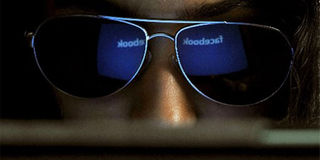READERS CORNER: Sorry state of language a result of poor curriculum

PHOTO | FILE
What you need to know:
We thus produce ‘A’ students through drilling, who cannot face a crowd and give a coherent speech. Teachers are pushed to the extent of rushing over the syllabus, hardly covering some important aspects of language and speech.
Nandiemo and Prof Okombo raised concern on the pronunciation of some common words.
There are more serious mistakes than what they addressed. We are living in a digital age where we are dealing with the ‘touch-screen’ generation, who may have adopted strange spellings and pronunciations from the media (radio and television) and social media.
I agree with Prof Okoth Okombo and reader Vivere Nandiemo’s articles on the state of English in the country. The two articles elicited plenty of reaction on ‘Teachers of English,’ a page on Facebook.
As a teacher, I believe we are partly to blame for the problems our learners face.
Allow me to quote from the Indian president’s speech in 2003 to mark the teacher’s day in India: “A student spends 25,000 hours on campus (school). The school must have the best teachers who have the ability to teach, love teaching, and build moral qualities. Teachers should become role models. Similarly, the students must be alert to build himself/herself with best qualities and to get ignited with a vision for his or her future life.” (APJ Abdul, 2003)
The president wants teachers to be role models, which most of us have failed to do. Nandiemo talked of poor reading habits. True, very few teachers read scholarly works such literary discourses in newspapers.
Most of us would read a guide book before getting into the classroom to analyse a text. And this is how we have ‘role-modelled’ our students. They always have to depend on the teacher’s guides for grammar and comprehension questions, and guide books for literary set books. It’s important to read secondary literary books on criticism on the set books before facing the students.
Most teachers of English can not sustain a discussion on the polemics. No wonder most of us are unaware of what is trending in the literary world. Once in 2013, a student on teaching practice asked me Francis Imbuga’s country of origin. Imbuga must have turned in his grave! Sometimes one can lack a term to describe such ignorance. It is a condition that lies between ignorance and lack of interest.
This leads to another concern that APJ Abdul raised in his speech: “…school must have the best teachers who have the ability to teach, love teaching, and build moral qualities.”
Teachers should love their work. This way they will impart the learner with adequate knowledge.
Teachers are not wholly to blame on the issues surrounding the teaching of English and literature in schools.
The Kenyan curriculum is thin on content in literature. Language should not be studied as an end, it should be studied as a means to access great cultural (intellectual) products captured in language. How many books have we exposed our learners to before they sit the KCSE and KCPE exams? As Education ministry official Kennedy Buhere would put it, we are all victims of a malnourished English curriculum.
The curriculum is tailored in such a way that success is only the equivalent of academic performance.
We thus produce ‘A’ students through drilling, who cannot face a crowd and give a coherent speech. Teachers are pushed to the extent of rushing over the syllabus, hardly covering some important aspects of language and speech.
Nandiemo and Prof Okombo raised concern on the pronunciation of some common words.
There are more serious mistakes than what they addressed. We are living in a digital age where we are dealing with the ‘touch-screen’ generation, who may have adopted strange spellings and pronunciations from the media (radio and television) and social media.
Think of comedians who make those accent-filled jokes with plenty of grammatical and sentence construction mistakes. It just makes me sick. Some have strange spellings like replacing letter ‘s’ with ‘x’. Our students tend to imitate these mistakes in their speech and writing.
The writer is a teacher of English at St Martha’s Mwitoti Secondary School in Kakamega County.




